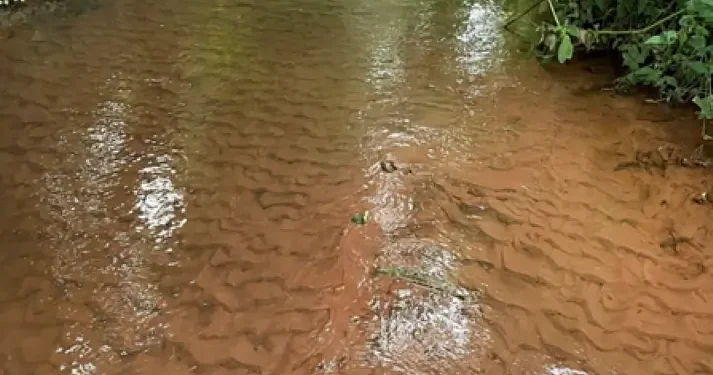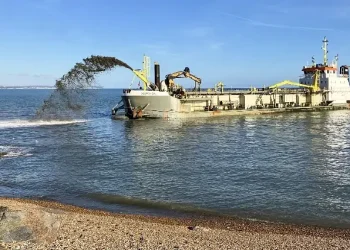David Mitchell, a potato farmer from Hillcommon, Taunton, was fined £9,078 for causing significant pollution by allowing silt-laden water and potatoes to escape into the Back Stream tributary of the River Tone in Somerset during heavy rain in August and September 2022.
This incident led to road closures on the A358 and extensive environmental damage.
Environmental and Legal Consequences
The pollution caused by David Mitchell’s farming practices was so severe that it would take an entire winter of normal water flow to clear the sediment from the riverbed.
The A358 road had to be closed twice due to soil and potatoes blocking the road, significantly impacting local traffic and safety. Despite receiving silt fencing and advice after the first incident, Mitchell failed to properly install protective measures.
Lessons for Farmers
- Proper land management is crucial to prevent environmental damage.
- High-risk crops like potatoes require careful planning on sloping fields.
- Ignoring environmental regulations can lead to substantial financial losses.
- Effective communication between landowners and tenants is essential.
Agricultural Practices Under Scrutiny
This case highlights the financial and legal risks farmers face if they fail to manage their land’s environmental impact.
Businesses in agriculture must ensure compliance with environmental regulations to avoid costly fines and compensation claims.
For example, a farmer losing over £40,000 due to pollution-related fines can significantly affect profitability in the UK farming sector.
The Role of Regulations
The incident underscores ongoing UK government efforts to reduce agricultural diffuse pollution under The Reduction and Prevention of Agricultural Diffuse Pollution (England) Regulations 2018.
Similar cases have been prosecuted, reinforcing legal frameworks established to protect watercourses from farming-related pollution.
David Womack of the Environment Agency criticized Mitchell’s lack of formal risk assessment and inadequate precautions. He said:
“David Mitchell had control and custody of the land he rented up until the point of harvest and was therefore responsible for the land management practices.
He chose to grow a high-risk crop on a sloping field with light soils. As an experienced potato farmer he should have identified the risks of using this field and taken reasonable steps to prevent large scale soil loss.
No formal risk assessment and no adequate precautions to prevent soil loss had been taken. This made it highly likely that soil erosion and environmental damage would occur in even moderate rainfall conditions.”
Additional Reading
In Conclusion
This case serves as a stark reminder for farmers about the importance of adhering to environmental regulations.
Effective soil management practices are essential not only for protecting natural resources but also for avoiding significant financial penalties.
As agricultural practices come under increasing scrutiny, proactive measures are vital for sustainable farming in the UK.
Discover more of More of Todays Top Breaking Government News Stories!
Sources: UK Government, Environment Agency, and West Somerset Free Press.
Prepared by Ivan Alexander Golden, Founder of THX News™, an independent news organization delivering timely insights from global official sources. Combines AI-analyzed research with human-edited accuracy and context.









